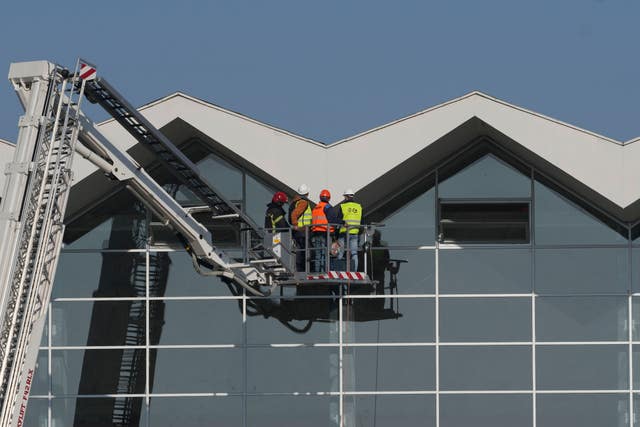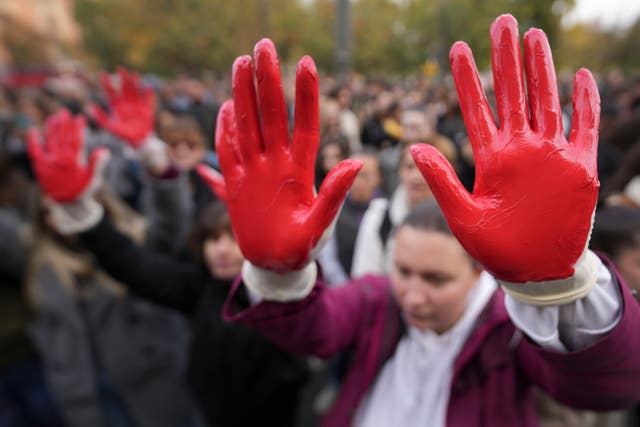
Scuffles and fistfights between the ruling party and opposition politicians broke out in Serbia’s parliament on Monday, weeks after a deadly rail station roof collapse that ignited tensions in the Balkan state.
The opposition wanted to discuss who was responsible for the collapse, which killed 15 people at the station in the northern city of Novi Sad on November 1, while governing officials, who have a majority in Serbia’s legislature, sought to adopt a bill on next year’s state budget.
The opposition displayed a banner showing a red handprint reading “blood is on your hands”, while the ruling party responded with a banner accusing the opposition of wanting “war while Serbia wants to work”.

Scuffles erupted when the two sides tried to grab each other’s banner.
Serbia’s parliament speaker Ana Brnabic was quick to accuse the opposition of wanting to come to power by force with help from outside.
“There is not a hint, not a grain of doubt that these are people who are well organised, who were trained quite well, I believe paid well, to create chaos in Serbia and destabilise our country,” she said.
Serbia’s autocratic president Aleksandar Vucic said on Instagram that the “daily bullying” and “the savage behaviour” of the opposition would not be tolerated.
“I want to reassure the citizens and tell them that we will respond to their rudeness, rudeness and arrogance with even more work in the future,” he said.

“Today they tried to prevent pensioners from receiving their increased pensions, public sector employees from their increased salaries. They won’t succeed.”
Opposition leader Dragan Djilas said the speaker had “shut down” the parliament by “refusing to allow a debate on who’s responsible for the rail station tragedy”.
“She started with that when she refused to put on the agenda the request of more than 80 members of the opposition for a debate on confidence in the government because of the murder and crime in Novi Sad,” Mr Djilas said.
The collapse of the concrete roof raised tensions across the Balkan country, fuelling widespread anger toward the government and protests.
The rail station, a major hub, was recently renovated as part of a Serbian-Chinese partnership.
Critics allege that corruption, poor oversight and inadequate construction work contributed to the tragedy.
The collapse became a flashpoint for broader dissatisfaction with Serbia’s authoritarian rule, reflecting growing public demands for transparency while the country undertakes large infrastructure projects, mostly with Chinese state companies.


Why are you making commenting on The National only available to subscribers?
We know there are thousands of National readers who want to debate, argue and go back and forth in the comments section of our stories. We’ve got the most informed readers in Scotland, asking each other the big questions about the future of our country.
Unfortunately, though, these important debates are being spoiled by a vocal minority of trolls who aren’t really interested in the issues, try to derail the conversations, register under fake names, and post vile abuse.
So that’s why we’ve decided to make the ability to comment only available to our paying subscribers. That way, all the trolls who post abuse on our website will have to pay if they want to join the debate – and risk a permanent ban from the account that they subscribe with.
The conversation will go back to what it should be about – people who care passionately about the issues, but disagree constructively on what we should do about them. Let’s get that debate started!
Callum Baird, Editor of The National
Comments: Our rules
We want our comments to be a lively and valuable part of our community - a place where readers can debate and engage with the most important local issues. The ability to comment on our stories is a privilege, not a right, however, and that privilege may be withdrawn if it is abused or misused.
Please report any comments that break our rules.
Read the rules here